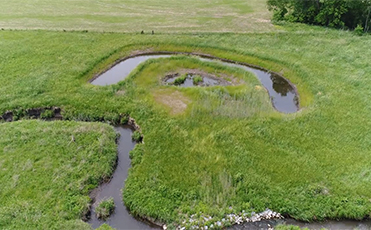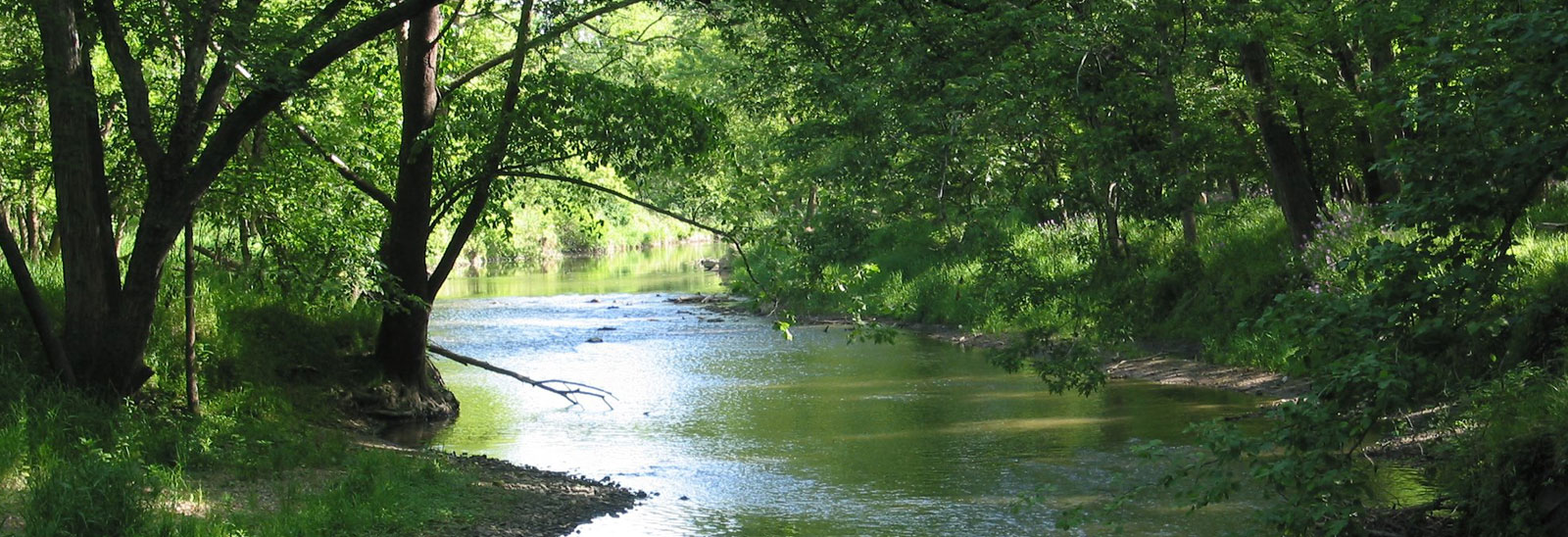City of Cedar Rapids Earns $7 Million Funding Agreement for Watershed Work
City of Cedar Rapids Earns $7 Million Funding Agreement for Watershed Work
April 28, 2021

The United States Department of Agriculture’s Natural Resources Conservation Services announced recipients of its 2020-21 Regional Conservation Partnership Project (RCPP) funding on Monday, April 26. The City of Cedar Rapids’ project, entitled Cedar River Source Water Partnership (CRSWP), will receive $7,028,362 in RCPP funding to improve water quality in the Cedar River.
The CRSWP is a collaboration among communities and agricultural partners to improve degraded water quality conditions threatening public and private source water supplies. The project will support on-the-ground conservation practices on farmland and provide direct technical assistance to producers and other agricultural stakeholders. The partnership is a continuation of the City’s efforts working upstream in agricultural areas to improve water quality in the Cedar River. Investment in upstream watershed areas provides direct benefits to the City such as improving drinking water quality and reducing flood flows.
“Cedar Rapids has been recognized nationally for our work to improve water quality,” said Roy Hesemann, utilities director for the City of Cedar Rapids. “With the Middle Cedar Partnership Project, we helped install real water quality improvement practices with demonstrable benefits. The Cedar River Source Water Partnership will take what we learned from that project and scale up our efforts to improve water quality in the Cedar River.”
The City of Cedar Rapids — in close collaboration with the City of Charles City and 10 additional jurisdictional, agricultural and media partners — will lead the CRSWP. The project will link cities in the Cedar River Watershed with vulnerable drinking water supplies to their agricultural neighbors. The project’s overarching goal is to improve water quality and protect source water in the Cedar River Watershed. Other expected project benefits include reduced flood flows to downstream communities and improved fish and wildlife habitat. The project partners will bring an estimated $10,495,078 in match contributions, with an anticipated total project investment of more than $17.5 million. The City of Cedar Rapids anticipates it will provide at least $1,496,000 in matching funds to the partnership, largely in the form of technical support.
The City’s watershed efforts ramped up in 2015 with the launch of the Middle Cedar Partnership Project, also funded through USDA-NRCS with support from multiple agencies and farming organizations. The CRSWP builds off the success of MCPP, expanding into the entire Cedar River Watershed, and launching a new phase of public-private partnerships with Land O’ Lakes Truterra and agricultural retailers including Linn Coop, Heartland Coop, Landus, and IAS.
“We are so proud for this opportunity to continue our work with producers and landowners upstream,” said Cedar Rapids City Manager Jeff Pomeranz. “Cedar Rapids has demonstrated experience leveraging RCPP funding to build public-private partnerships and make marked water quality improvements.”
On Monday, NRCS announced it will invest $330 million in 85 locally driven, public-private partnerships through RCPP. The projects are meant to address climate change, improve the nation’s water quality, combat drought, enhance soil health, support wildlife habitat and protect agricultural viability.
“The Regional Conservation Partnership Program is public-private partnership working at its best,” said Terry Cosby, Acting Chief for USDA’s Natural Resources Conservation Service. “These new projects will harness the power of partnership to help bring about solutions to natural resource concerns across the country while supporting our efforts to combat the climate crisis.”
With CRSWP, the majority of the USDA-NRCS funds will go directly to producers to implement practices such as cover crops, wetlands, bioreactors and saturated buffers. These farmland conservation practices are proven to significantly reduce nitrate runoff from farm fields. In addition to benefiting the Cedar Rapids drinking water supply, these practices will also help the State of Iowa meet its obligations under the Iowa Nutrient Reduction Strategy to reduce nitrate loading to the Mississippi River.
The City of Cedar Rapids Utilities Department will serve as the project lead. The eleven contributing partners are Iowa Agriculture Water Alliance, Iowa Department of Agriculture and Land Stewardship, Land O’ Lakes Truterra, City of Charles City, Linn County Conservation Board, The Nature Conservancy, Iowa Department of Natural Resources, Ingredion Inc, Iowa Future Farmers of America, and iHeart Media / WHO Radio. Additional project partners will be brought on in the coming months to provide targeted education and outreach services.
Additional Information
Cedar River Source Water Partnership (CRSWP)
The City of Cedar Rapids is preparing a project website to share news and updates on the CRSWP. To subscribe to our enewsletter mailing list, leave your email address below:
Regional Conservation Partnership Projects
Through RCPP, conservation partners work in collaboration with NRCS to help farmers, ranchers and forest landowners throughout the nation to implement systems that conserve water and soil resources, improve the health of wildlife habitats and increase climate resilience.
Links



